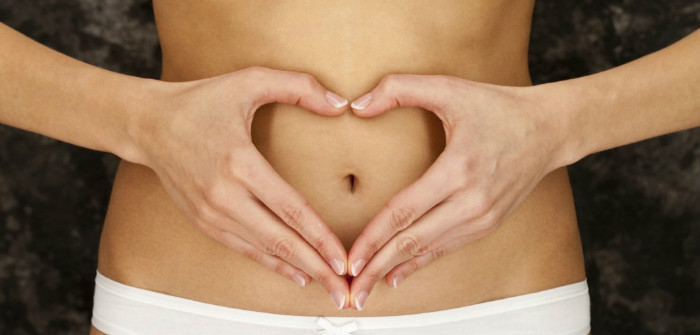Go Back
Sep 19 2013
Diet Tips to Get a Flat Belly Fast

Everybody has belly fat, even thin people. We need it to provide necessary cushioning around our organs. But if you’ve had children, are hitting the middle-age mark or eat the wrong foods, ab flab can set up shop. Jazzercise Founder and CEO Judi Sheppard Missett says a mindful diet full of fresh food will put you on the fast track to a flat belly.
Eating For A Flat Belly
- For every 10 grams of fiber you eat daily, your belly will carry almost 4 percent less fat. Eat whole grains, monounsaturated fats such as avocados, colorful vegetables and drink plenty of water.
- A low sugar diet fosters hormonal balance by keeping insulin low and glucagon (hormone that helps regulate blood glucose levels) high. Watch out for processed foods, which contain artificial sweeteners that cause bloating.
- Your body needs some sodium to function, but too much can lead to fluid retention. Replace processed foods with homemade meals so you can control the salt.
- If your stomach’s natural bacteria are out of balance, it can slow down digestion and lead to bloating. Rebalance with live active cultures found in yogurt, kefir, low-sodium miso and traditional fermented sauerkraut. Heat-treated brands destroy beneficial bacteria.
- Garlic, onions, green tea, pineapple, ginger, basil, mint, chamomile, parsley, sage, rosemary and thyme contain volatile compounds that regulate body fat.
Slim Belly Strategies
- Eating a protein snack between 3 p.m. and 4 p.m. boosts metabolism and balances blood sugar. The lower your blood sugar, the less fat you store around your middle.
- Normal-weight women are more likely to mirror a thin woman's eating habits. When you're at a restaurant, order first and select a healthy option. You’ll stay on track and may inspire your companions.
- Stress produces extra cortisol, the hormone that encourages the body to store fat—particularly in the abdominal region. Reduce stress in your life by taking a yoga or fitness class.
- Slow down and enjoy food. Meals that last at least 30 minutes are more satisfying and you are likely to end up eating less.
- Digestion begins in the mouth. Adequate chewing means food is digested better leading to less gas and bloating.
- Notice how you feel as you eat. Ask yourself: Do I feel gassy? Am I overfull after just a few bites of certain foods? Does my stomach make sounds or feel swollen following specific meals?